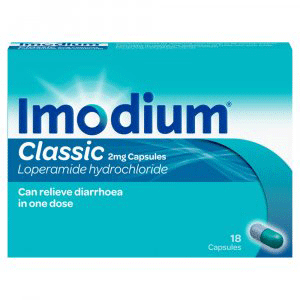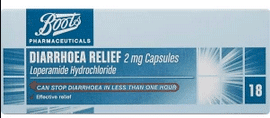Readers Question why are generic drugs cheaper than brand names?
An example from 2020. At Boots a tablet for relief of IBS (diarrhoea)
- Boots own brand (Loperamide Hydrochloride 18* 2mg) = £5.99 (£0.33 per 1 unit)

- Immodium (Johnson & Johnson)(Loperamide Hydrochloride 18 * 2 mg) = £9.29 (£0.51 per 1 unit)
Both have exactly the same amount of active ingredient (Loperamide hydrochloride), but the Boots is nearly 50% cheaper.
Why the difference in price?
- Brand loyalty. We are more likely to buy a good where we recognise the brand. Imodium is a well-known brand and people have a greater recognition of Imodium than the active ingredient Loperamide hydrochloride.
- Behavioural theory. If you are sick and in pain, it is understandable that you want to get the best medical treatment. If you go into a shop and see two options – which will you choose? It is not unreasonable that someone who didn’t know all about the active ingredients may assume that the more expensive medicine is more powerful medicine.
- Furthermore, you recognise one of the brands so you would rather stick with something you trust, rather than risk the less well-known brand. If you were buying petrol, we wouldn’t be willing to pay a 50% price premium. The only way we really judge petrol is based on petrol (we aren’t putting petrol in our bodies). But, when it comes to health, human psychology is different, we don’t want to be cheap with our health, it makes sense to try and get the best doctor, the best medicine – and usually a more expensive product indicates a better product.
- In this case, the more expensive product is no different to the cheaper product. The only difference is the packaging. But, if we have stomach problems do we go into the detail of what is actually in the pill we are taking? Pills seem so complicated and we feel we are unqualified to make a judgement, so the easiest way to make a judgement is to assume – the more expensive the better it is.
Personal experience
For many years, if I needed to, I always bought the most expensive branded drugs (could be things like aspirin, paracetamol, Nurofen/Ibuprofen.) I just bought without ever really investigating. You just assume the more expensive, better-packaged medicine is better for you. But, when I finally convinced myself the active ingredient is exactly the same, I always but the cheapest.
Did you know?
I heard a rumour that Tesco value baked beans are made by Heinz
![]()
Related


I think this answer completely misses some key points about the drug industry.
First, brand name drugs are created and discovered by innovating companies. These companies spend millions of dollars on discovery and clinical development programs to test the efficacy and safety of the compound. These trials take between four and ten years and only about 40% of the compounds make it to market. This investment is protected by intellectual property laws as well as exclusivity periods that come with regulatory approval in the US and Europe.
New branded drugs are then priced at a level according to their pharmacoeconomic benefit. This is done with modeling that examines the trade off of the risk that is reduced by taking the drug (heart attack, stroke, broken bones, progression of cancer) versus likelihood of reducing the event along with the cost of measures to treat that event (hospitalization, medical costs, etc.). Other drugs also provide a benchmark in this calculation. Cost of goods is generally a small fraction (less than 20%, many times less than 5%) of the selling price.
At the end of the exclusivity period (the longer of patent and regulatory exclusivity), a generic company can sell (with regulatory approval) a copy of the drug that is bioequivalent. Bioequivalence is shown by dosing patients with the drug and showing that the drug’s levels in the body are within about 15-20% of what the branded form delivered.
Because the generic company did not have to recover costs from innovation, and the generic company can expected competitors to supply the product, it will sell the product at cost plus a small markup.
For some products–for example products that treat seizure disorders, bioequivalence is not enough to call the products equal, and there are side effects when the patient switches to the generic from the branded product. Only a few generic forms are actually 100% copies of the branded drug–this happens when the branded manufacturer owns a generic distribution company. Pfizer owns Greenstone and Novartis owns Sandoz. Some of Greenstone’s products are the same as Pfizer’s..but only for those that are post exclusivity for Pfizer.
Packaging in branded pharmaceuticals is typically $1-2 per month’s supply–a trivial amount on a $150/month product.